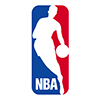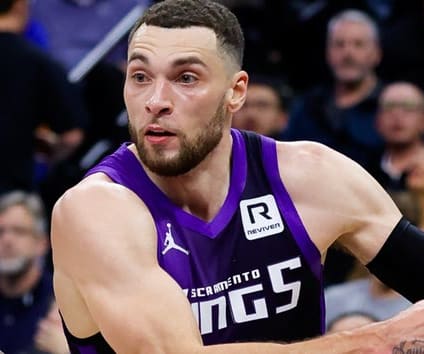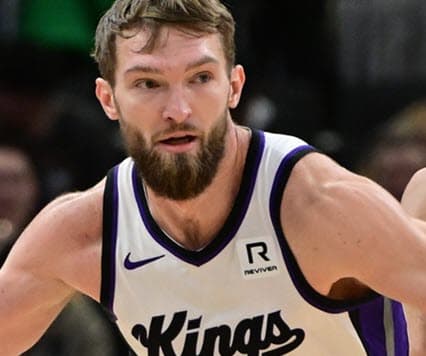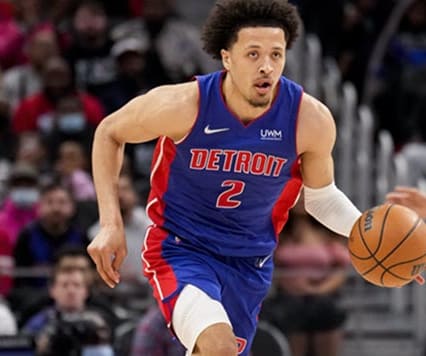2025 Stats
PTS
0.0
REB
0.0
AST
0.0
STL
0.0
BLK
0.0
ROS Projections
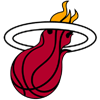
Does not feature in Game 2
Burks did not see the floor in Wednesday's Game 2 loss to Cleveland.
ANALYSIS
After logging 15 minutes in Game 1, the Heat replaced him with Davion Mitchell in the starting lineup. Burks' minutes have been trending in the wrong direction for a couple of weeks, and it would be a surprise to see him in the rotation for Game 3.
After logging 15 minutes in Game 1, the Heat replaced him with Davion Mitchell in the starting lineup. Burks' minutes have been trending in the wrong direction for a couple of weeks, and it would be a surprise to see him in the rotation for Game 3.
NBA Per Game Stats
Per Game
Total
Per 36
NBA Per Game Stats
Loading Per Game Stats...
2024 NBA Game Log
2024
2023
2022
2021
2020
2019
2018
2017
2016
2025 NBA Per Game Split Stats
Schedule
By Month
Starting/Off Bench
Days Rest
Vs Opp
By Result
2025 NBA Per Game Split Stats
Loading Split Stats...
Advanced Stats
Loading Advanced Stats...
Stat Review
2024
2023
2022
2021
2020
2019
2018
2017
2016
How does Alec Burks compare to other players?
This section compares his stats with all players from the previous three seasons (minimum 200 minutes played)*. The bar represents the player's percentile rank. For example, if the bar is halfway across, then the player falls into the 50th percentile for that stat and it would be considered average.
True Shooting %
60.8%
Effective Field Goal %
58.7%
3-Point Attempt Rate
76.4%
Free Throw Rate
18.1%
Offensive Rebound %
1.9%
Defensive Rebound %
13.9%
Total Rebound %
8.0%
Assist %
9.1%
Steal %
1.4%
Block %
0.8%
Turnover %
7.7%
Usage %
16.6%
Fantasy Points Per Game
13.5
Fantasy Points Per Minute
0.8
NBA Historical Fantasy Stats
Historical ADP
Loading Historical ADP...
Past Fantasy Outlooks
2024
2023
2022
2021
2020
2019
2018
2017
2015
2014
2013
2012
2011
Known for his ability to score in bunches, Burks has yet to establish himself as a reliable fantasy asset. Spreading his time across New York and Detroit during the 2023-24 season, Burks closed as the 294th-ranked player in nine-category formats. With modest averages of 10.4 points and 1.9 three-pointers, it's fair to say Burks was nothing more than an occasional streaming consideration. Following a move to Miami during the offseason, Burks will once again come off the bench, serving as a sparkplug scorer when needed. At first glance, there is a chance Burks may even struggle to play consistent minutes, especially if the Heat opts to lean into their youth a little more. Even in deeper formats, Burks comes with risk given his one-dimensional skillset and lack of a clear rotation spot.
More Fantasy News

Moving to bench
Burks will come off the bench for Wednesday's Game 2 of the first round of the Eastern Conference playoffs against the Cavaliers, Anthony Chiang of the Miami Herald reports.
ANALYSIS
Subscribe now to instantly reveal our take on this news.
Subscribe now to instantly reveal our take on this news.

Muted performance in loss
Burks closed Sunday's 121-100 loss to Cleveland in Game 1 of the first round of the Eastern Conference playoffs with six points (2-3 FG, 2-3 3Pt), two rebounds and two assists across 15 minutes.
ANALYSIS
Subscribe now to instantly reveal our take on this news.
Subscribe now to instantly reveal our take on this news.

Available to play
Burks (back) is available for Wednesday's Play-In game against Miami.
ANALYSIS
Subscribe now to instantly reveal our take on this news.
Subscribe now to instantly reveal our take on this news.

Won't play Sunday
Burks (back) has been ruled out for Sunday's game against the Wizards, Anthony Chiang of the Miami Herald reports.
ANALYSIS
Subscribe now to instantly reveal our take on this news.
Subscribe now to instantly reveal our take on this news.

Available to play Friday
Burks (back) is available for Friday's game against the Pelicans, Ira Winderman of the South Florida Sun Sentinel reports.
ANALYSIS
Subscribe now to instantly reveal our take on this news.
Subscribe now to instantly reveal our take on this news.
Latest Fantasy Rumors

Knicks could make move
The Knicks could be open to signing Burks before the start of the 2025-26 season, according to James L. Edwards III of The Athletic.
ANALYSIS
The Knicks have one roster spot open, but they can only fill it by signing a veteran player via a minimum deal, which limits their options. Even though Burks wouldn't add depth at point guard, which is an area New York desperately needs another option, he could be a valuable scoring weapon off the bench due to his three-point shooting. Burks spent the 2024-25 season as a member of the Heat but previously played for the Knicks in 2020-21, 2021-22 and 2023-24.
The Knicks have one roster spot open, but they can only fill it by signing a veteran player via a minimum deal, which limits their options. Even though Burks wouldn't add depth at point guard, which is an area New York desperately needs another option, he could be a valuable scoring weapon off the bench due to his three-point shooting. Burks spent the 2024-25 season as a member of the Heat but previously played for the Knicks in 2020-21, 2021-22 and 2023-24.



